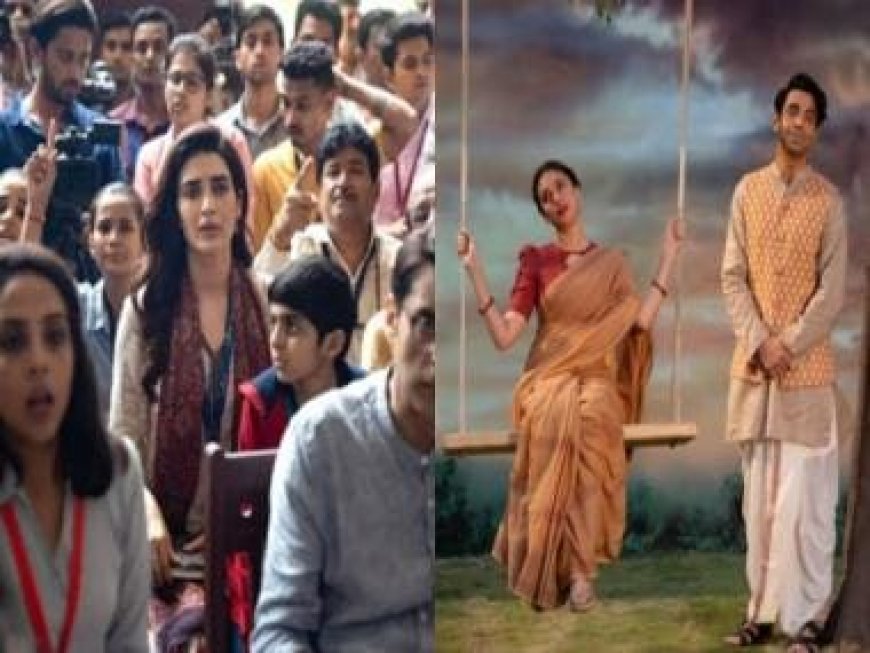From Harman Baweja in Netflix’s Scoop to Arun Govil in Jubilee streaming’s casting coups are paying off
From Harman Baweja in Netflix’s Scoop to Arun Govil in Jubilee streaming’s casting coups are paying off

In a scene from Hansal Mehta’s Scoop, JCP Shroff, played by a hardly recognisable actor, belches and squirms as his stomach twists him into knots. He has just served the person he secretly admires and at times openly pursues, to the dogs of police impudence. This is the dirty work that comes with being a senior police officer, where ego and righteousness form a sort of toxic combination that unless released in some sort of vague manner, would probably eat you on the inside. Harman Baweja, as Shroff, is a casting masterstroke. His rudimentary, broad yet slackly built exterior becomes the perfect vehicle for a character that needs to visible but never larger than life. It’s one of those casting unicorns, which proves that on streaming, innovation can begin at the stage of scouting the bodies, as opposed to feeding them the story.
On some level this is a referendum on Bollywood, its eerie laughable use of talent in the past. Look beyond Baweja, his intrepid turn in Scoop and you can spot similar performances elsewhere. Arun Govil, who once played Ram in Ramanand Sagar’s Ramayana – a role from which there would seem there is no turning back – was re-invented most recently in Vikramaditya Motwane’s Jubilee. Unlike Baweja, Govil’s turn as the graceful, earthy father of Jay (Sidhant Gupta), can’t be bracketed in the new-lease-of-life category, for his first coming was a mammoth, country-arresting act. And yet there was a surreal charm to watching Govil extract from his inner self, something beyond the aura of godliness, something akin to the mortifying existence of a father, recently partitioned from his home.
Rajpal Yadav was once the toast of Indian comedy, but his absence from cinema for about a decade implied that comedies became mainstream acts of social correction. Woke actors now grab social issues – i.e. the Ayushmaan Khurrana trope – and then turn them into narratives of socio-political awakenings. The comedy is the pull, and the message an excuse for it to be there. Things were simpler when Yadav was around for the first leg of his career. In Netfix’s quirky Kathal his one of many recent comebacks finally finds the shoes he has been born to fill. As a bull-headed, goofy journalist chasing a story at all costs, Yadav plays a local citizen journalist of Moba news, with all the characteristic ticks that made him stand out at the turn of the millennium.
Streaming’s liberal outposts mean, that beyond the forgotten or untried men of Hindi cinema, women have been allowed the opportunity to anchor their own stories as well. Dimple Kapadia finally played the complex matriarch in Saas Bahu aur Flamingo (Hotstar), while Sharmila Tagore, essayed the kind of bewitching performance in Gulmohar (also Hotstar) that would have maybe never happened in theatrical releases. Even actresses who have for the longest time fit the glove of the damsel in distress in Hindi cinema have discovered, bolder, more incisive roles that go beyond the beauty and the glamour of it all – think Madhuri Dixit in Maja Ma, Juhi Chawla in Hush Hush and Sonali Bendre in The Broken News.
Then there is the sensational reincarnation of some beloved characters from Tv’s heady soap years. Sakshi Tanwar in Netflix’s Mai is possibly the most stunning departure from the kind of cultural history that inures you to critical prejudice. Nobody expected Tanwar to deliver such a chilling performance and it might just be the reason why Mai’s humble tenacity pierces your gut. Even if the show’s violent excesses feel elusive, you can’t help but admire the courage to ask Tanwar to divorce herself from the image of servitude she had early in her career milked to perfection. Coincidentally, Netflix’s Scoop features not one but many of these inspired choices. Karishma Tanna as the lead is a bit of a rough diamond while the appearance of Amar Upadhyay, once cable television’s most famous son in Mihir as a washed up actor, is another red herring. It’s a signal, as a clear as any yet, that streaming ought to go beyond the tried and tested tropes of casting. It needs to look under the rock of Hindi cinema’s blindness.
For the longest time, in Scoop, it’s hard to spot Baweja, scout in him that chocolate-y actor who appeared on our screens all those years ago, as the cheaper imitation of a popular icon. Rarely has anyone managed to step out of that kind of shadow and though Baweja isn’t fully out of it yet, his turn as Shroff is a promising sign. Here he carves an identity, utilising his un-heroic figure to create a complex anti-hero who might just be the problem he is trying to fix. It’s a role that could and possibly should lead to more interesting opportunities, should the gatekeepers of streaming continue to, unlike the Hindi film industry, champion the artist and the story, as opposed to the medium.
Read all the Latest News, Trending News, Cricket News, Bollywood News, India News and Entertainment News here. Follow us on Facebook, Twitter and Instagram.
What's Your Reaction?



























































